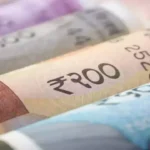In a stunning revelation, leading Chinese smartphone manufacturers, including Oppo Mobile, Vivo India, and Xiaomi Technology, have been accused of evading taxes amounting to a staggering Rs 9,000 crore in India. The Minister of State for Electronics and Information Technology, Rajeev Chandrasekhar, disclosed this alarming data in the Rajya Sabha, shedding light on the customs duty and Goods and Services Tax (GST) evasion that took place between 2018 and 2023. This revelation has sent shockwaves through the Indian government and the tech industry, raising concerns about the integrity of foreign companies operating in the country. Let’s delve deeper into the details of this alleged tax evasion scandal and its implications on India’s economic landscape.
- The Unearthed Scandal:
The tax evasion scandal involving prominent Chinese smartphone makers surfaced as a result of meticulous investigations and diligent efforts by Indian authorities. The findings revealed that over the past five years, these companies managed to avoid paying approximately Rs 9,000 crore in taxes. The evasion includes both customs duty and GST, indicating a well-coordinated attempt to circumvent Indian tax laws. The data shared by Rajeev Chandrasekhar shed light on the extent of this financial misconduct, causing outrage among lawmakers and citizens alike.
- The Government’s Recovery Efforts:
While the scale of the tax evasion is significant, the Indian government has not remained idle. During the same period of 2018-2019 to 2022-2023, authorities successfully recovered Rs 1,629.87 crore from the accused companies. This action indicates the government’s commitment to upholding tax compliance and punishing those who engage in unlawful activities. However, the recovery amount is still a fraction of the total tax evaded, raising questions about the efficiency of tax enforcement mechanisms and the need for stronger regulatory measures.
- Impact on the Indian Economy:
The tax evasion scandal has wider ramifications for India’s economy. Firstly, it raises concerns about the fairness of the business environment for domestic manufacturers and other foreign companies that diligently abide by Indian tax laws. Unfair competition can distort market dynamics and hinder the growth of legitimate businesses, ultimately affecting employment and economic stability.
Secondly, the substantial loss of revenue due to tax evasion puts additional strain on the government’s finances. In a country that strives for economic growth and social welfare, such a loss of potential revenue can lead to a reduction in public spending on essential services, infrastructure development, and welfare schemes. It may also force the government to explore other avenues to make up for the shortfall, such as increasing taxes on citizens and businesses, which can further impact economic growth.
- Legal and Diplomatic Challenges:
The alleged tax evasion scandal is not just a domestic matter but also a matter of international relations. India’s relations with China have been a subject of scrutiny and complexity in recent years. Accusing prominent Chinese companies of financial misconduct can add strain to these already sensitive relations. The Indian government will need to navigate these challenges carefully, ensuring that the investigation and actions taken against the companies are conducted transparently and based on solid evidence.
- Calls for Stricter Enforcement and Transparency:
The tax evasion scandal has ignited debates within the government and the public sphere about the need for stronger enforcement of tax laws and enhanced transparency in the dealings of foreign corporations. It may lead to revisions in existing tax policies, greater scrutiny of multinational companies, and the implementation of measures to prevent similar instances of tax evasion in the future.
Conclusion:
The alleged tax evasion scandal involving Chinese smartphone makers has sent shockwaves across India’s political and economic landscape. With billions of rupees evaded, the government faces significant challenges in ensuring tax compliance and maintaining a fair business environment. The recovery efforts demonstrate the government’s commitment to upholding the rule of law, but they also highlight the need for a more robust and transparent taxation system. As the investigation progresses, India must tread carefully to preserve diplomatic relations while ensuring that all companies, regardless of their origin, comply with the country’s tax regulations. Only through effective enforcement and accountability can India safeguard its economic interests and promote a level playing field for businesses.









